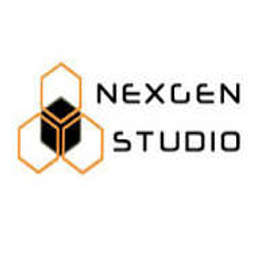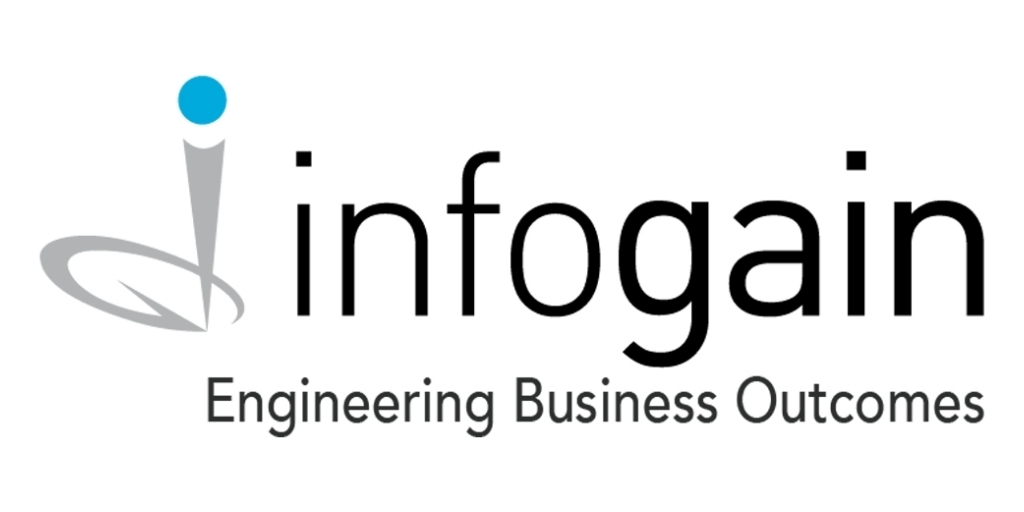In the digital age, the metaverse has transitioned from a speculative fiction concept to a burgeoning industry reality. It stands as the new digital epoch, an expansive universe where the virtual and physical realms converge through technology. This virtual cosmos is not just a playground for the imagination but a rapidly growing market that beckons a future where our digital and physical lives are inextricably linked.
At the heart of this revolutionary space are the metaverse development companies, the titans and trailblazers who are carving out the digital landscapes of tomorrow. These entities are the avant-garde of a tech revolution, pushing the boundaries of what’s possible in creating immersive, interactive worlds where people can work, play, and connect in ways previously confined to the realm of science fiction.
Understanding the metaverse requires us to envision a world where our digital avatars can attend concerts, buy virtual land, and interact in real-time within a shared digital space. It’s a world that’s being built today by these top metaverse development companies. They leverage cutting-edge technologies like virtual reality (VR), augmented reality (AR), artificial intelligence (AI), and blockchain to create a tapestry of virtual spaces that are as vast as they are varied.
The promise of the metaverse is not just in the novelty of its creation but in the depth of its impact. It heralds a new era of connectivity, pushing the frontiers of digital commerce, online interaction, and community building. As such, the companies leading this charge are not merely creating digital experiences; they are redefining the very essence of community and commerce in a boundless virtual sphere.
In this detailed examination, we will uncover the layers of this intricate digital universe, highlighting the companies that are defining this space. These pioneers are chosen not just for their technical prowess but for their visionary outlook on a digital future that is both inclusive and revolutionary. Join us as we delve into the essence of the metaverse, the challenges and triumphs of its architects, and the profound implications of their work on our future society.
NexGen Studios

NexGen Studios is a leading metaverse development company that specializes in creating immersive and interactive environments. The company has a team of experienced developers who are passionate about creating the next generation of metaverse experiences. NexGen Studios has worked on a variety of metaverse projects, including games, social platforms, and educational experiences.
Oyelabs

Oyelabs is a full-service metaverse development company that offers a wide range of services, including metaverse application development, metaverse game development, metaverse NFT marketplace development, metaverse real estate platform development, metaverse social media platform development, decentralized platform development, and metaverse integration services.
SemiDot Infotech
SemiDot Infotech is another leading metaverse development company that offers a wide range of services, including metaverse application development, metaverse NFT marketplace development, 3D spaces development, decentralized platform development, metaverse integration services, metaverse game development, metaverse real estate development, and metaverse social media platform development.
LeewayHertz
LeewayHertz is a metaverse development company that specializes in developing customized metaverse applications for a variety of industries, including consumer electronics, fintech, healthcare, insurance, logistics, on-demand app development, manufacturing, EdTech, startups, and travel.
Pixelette Technologies
Pixelette Technologies is a metaverse development company that specializes in developing immersive and interactive metaverse experiences for a variety of industries, including gaming, entertainment, education, and healthcare.
IdeaSoft

IdeaSoft is a metaverse development company that specializes in developing metaverse applications for a variety of industries, including gaming, social media, and e-commerce.
Apriorit
Apriorit is a metaverse development company that specializes in developing metaverse applications for a variety of industries, including healthcare, education, and retail.
Magicmind Technologies Limited

Magicmind Technologies Limited is a metaverse development company that specializes in developing metaverse applications for a variety of industries, including gaming, social media, and e-commerce.
ChicMic
ChicMic is a metaverse development company that specializes in developing metaverse applications for a variety of industries, including gaming, social media, and e-commerce.
Infogain

Infogain is a metaverse development company that specializes in developing metaverse applications for a variety of industries, including gaming, retail, and healthcare.
Our Criteria
In the swiftly evolving domain of metaverse development, identifying the leading companies is a complex endeavor. The criteria for selection extend beyond traditional metrics, delving into the specialized realms of technological innovation, user experience, and creative vision. The following criteria provide a more in-depth view of the multifaceted approach used to select the top metaverse development companies.
Technical Expertise and Innovation
- Advanced Technical Skill Set: Mastery over state-of-the-art development tools and technologies is essential. This includes expertise in 3D modeling, immersive environment design, VR and AR integration, and AI implementation.
- Innovation in Design and Functionality: The ability to create unique user experiences that push the boundaries of what’s currently possible in the metaverse is highly valued.
Portfolio and Demonstrated Experience
- Diverse and Rich Portfolio: A track record of successful projects showcasing a variety of metaverse environments is crucial.
- Specialized Experience: Experience in developing platforms that cater to specific industries or use cases, such as virtual events, gaming, or educational programs, stands out.
Market Position and Industry Recognition
- Industry Awards and Recognitions: Accolades and awards from reputable institutions can validate a company’s standing in the industry.
- Client Testimonials and Case Studies: Positive feedback from previous clients and detailed case studies demonstrate a company’s ability to deliver quality projects.
Scalability and Interoperability
- Scalability Solutions: The company’s approach to creating metaverse platforms that can grow and evolve with user demand is a key consideration.
- Interoperability Focus: A forward-thinking approach to interoperability, allowing their metaverse creations to function across various devices and platforms, is critical.
User-Centric Design
- User Experience (UX) Excellence: The extent to which a company prioritizes user experience in their designs, ensuring intuitive navigation and interaction.
- Accessibility and Inclusivity: Companies that design with accessibility and inclusivity in mind ensure that their metaverse platforms are welcoming to all users.
Sustainability and Ethical Practices
- Sustainable Development Practices: Companies that implement sustainable development practices stand out, especially those that consider the environmental impact of their server use and digital waste.
- Ethical Frameworks: A commitment to ethical considerations, such as user privacy, data security, and content moderation, reflects a company’s dedication to responsible metaverse development.
Business Models and Monetization Strategies
- Innovative Business Models: The ability to develop profitable and sustainable business models for the metaverse platforms they create.
- Effective Monetization Strategies: Expertise in integrating monetization avenues such as virtual goods, NFTs, and in-world transactions in a way that enhances user experience.
Research and Development (R&D) Investment
- Commitment to R&D: Companies that invest heavily in research and development indicate a dedication to staying at the forefront of metaverse technology.
- Collaborative R&D Efforts: Participation in industry consortia and collaborative projects can be a sign of a company’s leadership in shaping the future of the metaverse.
Vision and Strategy for the Future
- Long-Term Strategic Vision: Companies with a clear and compelling vision for the future of the metaverse and their role in it suggest a forward-thinking mindset.
- Adaptability to Emerging Trends: The capacity to adapt to the rapidly changing landscape of metaverse development is crucial for long-term success.
These comprehensive criteria are utilized to meticulously evaluate and identify the top metaverse development companies. They reflect a company’s ability not only to deliver exceptional current projects but also to drive the industry forward through innovation, user engagement, and a commitment to ethical and sustainable practices.
Industry Overview
The concept of the metaverse, a term first coined in science fiction, has leapt from the pages of novels into the realm of reality, shaping up to be the next evolution of the internet. We stand on the precipice of a digital revolution, where the metaverse promises a future that is interconnected through virtual experiences and economies. This burgeoning industry is a melting pot of technologies, including virtual reality (VR), augmented reality (AR), artificial intelligence (AI), blockchain, and more, all converging to create a seamless virtual existence.
As an industry, the metaverse is both nascent and explosive. It’s expected to transform a multitude of sectors such as gaming, entertainment, education, and even real estate, transcending traditional online experiences to something far more immersive and interactive. According to experts, the metaverse market could be worth trillions in the future, as it begins to touch every facet of human activity.
Key Drivers:
- Technological Advancements: Breakthroughs in VR and AR technologies have laid the groundwork for more immersive experiences. 5G networks promise to provide the bandwidth needed for high-fidelity virtual worlds.
- Investment Influx: Venture capital is pouring into metaverse startups, while tech giants are realigning their business strategies to incorporate metaverse concepts.
- Cultural Shift: The COVID-19 pandemic has accelerated digital adoption, with more people seeking online venues for work, play, and socialization.
- Demand for Digital Assets: There’s a growing interest in digital ownership authenticated by blockchain technology, with NFTs and virtual real estate sales booming.
Challenges and Opportunities:
The metaverse industry is not without its challenges. There are significant hurdles such as data privacy, content moderation, and the digital divide that must be overcome. Additionally, there’s the complex task of creating interoperable spaces where different metaverse platforms can connect and interact. These challenges, however, present opportunities for innovation and collaboration.
Market Dynamics:
- Competition: The competitive landscape is diverse, with startups challenging incumbents, and tech behemoths like Facebook, now Meta, investing heavily in defining the metaverse experience.
- Collaborations: There’s a trend toward collaboration between different tech disciplines, as the metaverse requires a multidisciplinary approach to development.
- Consumer Engagement: The industry is exploring new ways to engage consumers, beyond gaming, into virtual events, concerts, and conferences.
Global Impact:
The global impact of the metaverse is projected to be vast. It holds the potential to bridge geographical distances, create new job categories, and redefine how we interact with digital content. Economically, it could introduce new models for monetizing digital content and services, impacting various industries.
Regulatory Environment:
Regulators are beginning to take notice of the metaverse, contemplating how to govern digital ownership, privacy, and security within these virtual spaces. The industry will likely see an evolving landscape of regulations as governments attempt to keep pace with technological advancements.
Looking Ahead:
As we look to the future, the metaverse industry stands at a pivotal point. With advancements in technology, increasing investment, and a growing user base, the metaverse is poised for rapid expansion. This is an industry fueled by imagination and innovation, where the digital worlds we once dreamed of are becoming a tangible reality.
Metaverse Development Challenges and Solutions
Developing the metaverse is an ambitious undertaking that presents unique challenges. The companies that excel in this space not only identify these challenges but also pioneer innovative solutions to address them.
Challenge: Technological Limitations
- High-Performance Requirements: The metaverse demands high-speed internet and powerful hardware, which can be inaccessible to many users.
- Solution: Top companies are working with hardware manufacturers to improve device capabilities and optimize software to reduce the required computational power.
Challenge: Interoperability
- Cross-Platform Compatibility: There is a need for seamless experiences across various devices and platforms.
- Solution: Developers are creating standardized protocols and APIs to facilitate interoperability between different metaverse spaces and platforms.
Challenge: User Privacy and Data Security
- Data Vulnerability: The collection of data in the metaverse raises concerns about user privacy and security.
- Solution: Implementing end-to-end encryption, secure authentication methods, and transparent data policies are ways companies are boosting user trust.
Challenge: Content Moderation
- Maintaining Community Standards: With user-generated content, there’s a risk of inappropriate or harmful material.
- Solution: Companies are investing in AI-driven content moderation tools and community governance models to maintain safe and inclusive environments.
Challenge: Scalability
- Handling User Growth: As the metaverse grows, platforms must be able to scale without compromising performance.
- Solution: Developers are employing cloud-based solutions and edge computing to distribute the load and ensure scalability.
Challenge: Accessibility
- Inclusivity for All Users: Ensuring the metaverse is accessible to users with disabilities is vital.
- Solution: Adhering to accessibility guidelines and designing with universal design principles in mind are ways companies are making the metaverse more inclusive.
Challenge: Realistic Physics and Avatars
- Creating Lifelike Interactions: Users expect a high level of realism within the metaverse.
- Solution: Advanced physics engines and AI-driven avatars are being developed to create more natural interactions and movements.
Challenge: Economic Models
- Monetization and Value Exchange: Building a sustainable economy within the metaverse is complex.
- Solution: Companies are experimenting with digital currencies, NFTs, and blockchain technology to create robust economic models.
Challenge: Legal and Ethical Issues
- Navigating New Legal Terrain: The metaverse presents new legal challenges around virtual property and behavior.
- Solution: Engaging with legal experts and policymakers to establish clear regulations and standards for the metaverse is a critical step companies are taking.
Challenge: User Experience (UX) Design
- Intuitive Navigation: Crafting intuitive and engaging UX designs in a 3D space is challenging.
- Solution: Companies are conducting extensive user research and testing to develop user-friendly interfaces and controls.
Challenge: Bandwidth and Latency
- Real-time Interaction: Ensuring real-time interactions with minimal latency is crucial for immersion.
- Solution: Developers are leveraging new networking technologies like 5G and optimizing network protocols for improved performance.
Challenge: Continuous Evolution
- Keeping Pace with Change: The metaverse is continuously evolving with new technologies emerging.
- Solution: Companies are fostering a culture of continuous learning and agile development to adapt quickly to new advancements.
The leaders in metaverse development are those that not only anticipate these challenges but also engage proactively with solutions. Their success lies in their ability to turn obstacles into opportunities, paving the way for a metaverse that is not only technologically advanced but also secure, inclusive, and user-friendly.
Wrapping Up
As we conclude our exploration of the top metaverse development companies, it’s evident that these pioneers are not just creating virtual spaces; they are laying the foundation for a new digital era. Their work transcends traditional boundaries of interaction, commerce, and community building, heralding a future where the metaverse is intertwined with our daily lives.
These companies are the architects of tomorrow’s digital landscapes, where the potential for innovation is as boundless as the virtual horizons they’re creating. From facilitating global collaborations to redefining entertainment, the metaverse holds the promise of a future that bridges the gap between the digital and the physical worlds.
The journey towards a fully-realized metaverse is fraught with challenges, both technical and ethical, but the companies leading this charge are equipped with the creativity, expertise, and vision necessary to overcome these hurdles. They are at the forefront of a technological renaissance, pioneering developments that will dictate the course of digital interaction for generations to come.
In this rapidly evolving industry, staying informed is key. As developers continue to push the envelope, we’ll see the metaverse become more realistic, more integrated, and more central to our lives. It represents not just a new platform for business and socialization but a paradigm shift in how we conceive of and interact with the virtual world.
The metaverse is more than a buzzword; it’s a burgeoning realm of possibility that is being carefully crafted by the companies we’ve highlighted. As this virtual space grows, it will offer new opportunities for creativity, expression, and human connection.
Looking ahead, the importance of the metaverse in our digital and physical lives is set to increase, making the role of these development companies all the more critical. They’re not only shaping digital worlds but also the future of our interconnected existence. The metaverse awaits, and thanks to these top developers, it’s a future full of infinite potential.
In closing, the metaverse is not a distant dream; it is an unfolding reality. As we stand on this digital frontier, let’s watch with anticipation as the top metaverse development companies chart our course into this new universe.
Frequently Asked Questions
What is the metaverse and why is it significant?
The metaverse is a collective virtual shared space, created by the convergence of virtually enhanced physical reality and physically persistent virtual space. It’s significant because it represents a new frontier for human interaction, economic activity, and technological innovation.
How do metaverse development companies contribute to the industry?
Metaverse development companies are crucial in creating the infrastructure, platforms, and experiences that constitute the metaverse. They innovate with new technologies and design immersive environments that define the user experience.
What technologies are pivotal in metaverse development?
Technologies such as virtual reality (VR), augmented reality (AR), blockchain, artificial intelligence (AI), and cloud computing are central to creating immersive, interactive, and secure metaverse experiences.
How does blockchain technology fit into the metaverse?
Blockchain technology underpins the economic layer of the metaverse, facilitating secure transactions, authenticating ownership of digital assets through NFTs, and supporting decentralized governance structures.
Are there any privacy concerns in the metaverse?
Yes, privacy concerns in the metaverse include data collection, user tracking, and the potential for misuse of personal information. Companies are addressing these issues through encryption, consent-based data practices, and robust security measures.
What is the potential economic impact of the metaverse?
The metaverse has the potential to create new economic sectors, transform existing industries, and generate significant revenue through virtual goods and services, digital real estate, and new forms of advertising.
How are metaverse development companies addressing accessibility?
Companies are incorporating accessibility features and design principles from the outset to ensure the metaverse is inclusive for people with disabilities. This includes voice navigation, subtitles, and customizable avatars.
What challenges do metaverse development companies face?
Challenges include creating scalable and interoperable platforms, ensuring user safety and privacy, managing complex economic systems, and overcoming technological limitations like hardware requirements and bandwidth.
Can metaverse experiences be enjoyed without VR equipment?
While VR equipment provides the most immersive experience, many metaverse platforms are accessible via PCs, consoles, and mobile devices, allowing a broader audience to participate.
What roles do AI and machine learning play in the metaverse?
AI and machine learning are used for natural language processing, creating responsive environments, personalizing user experiences, and managing complex systems within the metaverse.
How do metaverse companies handle content moderation and community standards?
Many companies employ a combination of AI-driven tools and human oversight to moderate content, enforce community standards, and ensure a safe environment for all users.
Is there a way to measure the success of a metaverse development company?
Success can be measured by user engagement, the quality and innovation of their virtual environments, the robustness of their economic models, and their impact on the industry.
What is the role of user-generated content in the metaverse?
User-generated content is fundamental to the metaverse, empowering users to create and share their own experiences, which fosters a rich, dynamic, and diverse virtual world.
How do companies ensure the metaverse is a safe space for users?
Safety measures include strict privacy controls, real-time content moderation, user education, and systems to report and address harassment or abuse.
What future developments can we expect in the metaverse?
Future developments may include more realistic virtual environments, advanced AI interactions, deeper integration with physical spaces through AR, and more sophisticated economic systems.
How can someone get involved in the metaverse?
Getting involved can be as simple as joining a metaverse platform, participating in virtual events, or investing time in learning development skills to contribute to the creation of the metaverse.
Featured Image Credit: Photo by Maxim Hopman; Unsplash – Thank you

